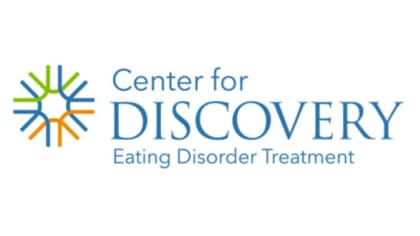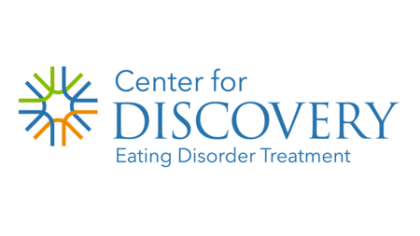- Calls to this hotline are currently being directed to Within Health, Fay or Eating Disorder Solutions
- Representatives are standing by 24/7 to help answer your questions
- All calls are confidential and HIPAA compliant
- There is no obligation or cost to call
- Eating Disorder Hope does not receive any commissions or fees dependent upon which provider you select
- Additional treatment providers are located on our directory or samhsa.gov
Eating Disorder Treatment Near Me
Best Eating Disorder Treatment Centers
Eating disorders are complex and dangerous conditions which tend to get worse over time. But recovery from anorexia, bulimia, binge eating disorder, and more is possible with the right kind of care. Finding an appropriate eating disorder treatment center, clinic, or other types of eating disorder treatment, is one of the most important steps on the journey toward healing.

Princeton Center for Eating Disorders

Center for Discovery Southport

Alsana St. Louis

Alsana Westlake Village

Center for Discovery Maitland

Center for Discovery McLean Residential
Top Virtual Eating Disorder Centers
Eating disorders are complex and perilous conditions that can worsen if left untreated. Yet, hope and recovery are within reach, especially with the advent of specialized virtual care. Opting for an online eating disorder treatment service is a pivotal move in your journey toward healing. These virtual platforms empower you to connect with qualified healthcare providers without the constraints of geographical location or the stress of physical appointments. In this digital age, achieving lasting recovery can be just a click away. With the right virtual treatment, you can navigate the complexities of anorexia, bulimia, binge eating disorder, and other eating disorders from the safety and privacy of your own home.
Top Cities for Treatment
For many people struggling with an eating disorder, “finding an eating disorder therapists near me” is a top priority. Thankfully, many cities have a number of options, from residential eating disorder treatment to outpatient care.

New York, NY

Chicago, IL

Denver, CO

Los Angeles, CA

Seattle, WA

Austin, TX

Atlanta, GA

Washington, DC
Browse Centers, Therapists, & Dietitians By State
Eating disorder treatment options vary from state to state. Below are some of the best options in each state for therapy, inpatient care, outpatient programs, and more.
It’s also possible to find comprehensive virtual care for eating disorders, no matter where you live.
- Alabama
- Alaska
- Arizona
- Arkansas
- California
- Colorado
- Connecticut
- Delaware
- District of Columbia
- Florida
- Georgia
- Hawaii
- Idaho
- Illinois
- Indiana
- Iowa
- Kansas
- Kentucky
- Louisiana
- Maine
- Maryland
- Massachusetts
- Michigan
- Minnesota
- Mississippi
- Missouri
- Montana
- Nebraska
- Nevada
- New Hampshire
- New Jersey
- New Mexico
- New York
- North Carolina
- North Dakota
- Ohio
- Oklahoma
- Oregon
- Pennsylvania
- Rhode Island
- South Carolina
- South Dakota
- Tennessee
- Texas
- Utah
- Vermont
- Virginia
- Washington
- West Virginia
- Wisconsin
- Wyoming





